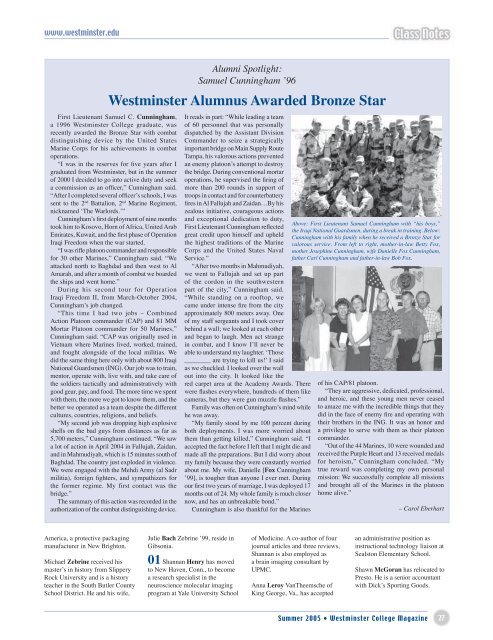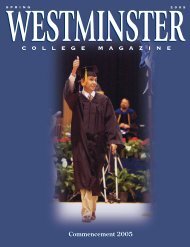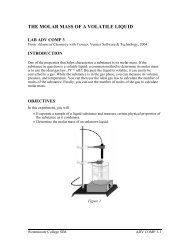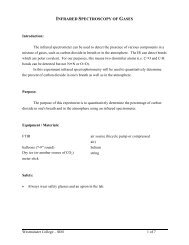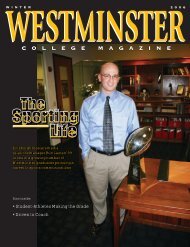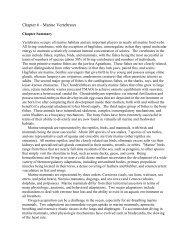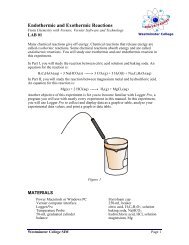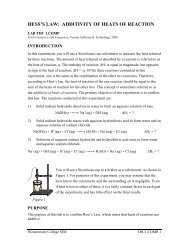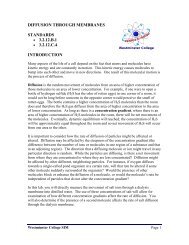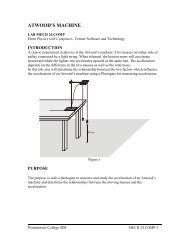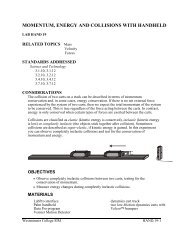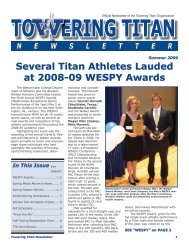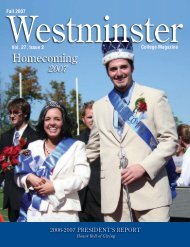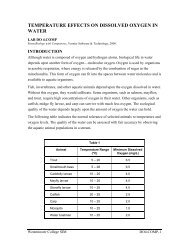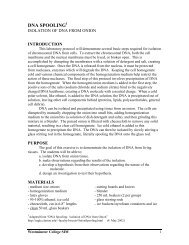download pdf (2.56 MB) - Westminster College
download pdf (2.56 MB) - Westminster College
download pdf (2.56 MB) - Westminster College
Create successful ePaper yourself
Turn your PDF publications into a flip-book with our unique Google optimized e-Paper software.
www.westminster.edu<br />
First Lieutenant Samuel C. Cunningham,<br />
a 1996 <strong>Westminster</strong> <strong>College</strong> graduate, was<br />
recently awarded the Bronze Star with combat<br />
distinguishing device by the United States<br />
Marine Corps for his achievements in combat<br />
operations.<br />
“I was in the reserves for five years after I<br />
graduated from <strong>Westminster</strong>, but in the summer<br />
of 2000 I decided to go into active duty and seek<br />
a commission as an officer,” Cunningham said.<br />
“After I completed several officerʼs schools, I was<br />
sent to the 2 nd Battalion, 2 nd Marine Regiment,<br />
nicknamed ʻThe Warlords.ʼ”<br />
Cunninghamʼs first deployment of nine months<br />
took him to Kosovo, Horn of Africa, United Arab<br />
Emirates, Kuwait, and the first phase of Operation<br />
Iraqi Freedom when the war started.<br />
“I was rifle platoon commander and responsible<br />
for 30 other Marines,” Cunningham said. “We<br />
attacked north to Baghdad and then west to Al<br />
Amarah, and after a month of combat we boarded<br />
the ships and went home.”<br />
During his second tour for Operation<br />
Iraqi Freedom II, from March-October 2004,<br />
Cunninghamʼs job changed.<br />
“This time I had two jobs – Combined<br />
Action Platoon commander (CAP) and 81 MM<br />
Mortar Platoon commander for 50 Marines,”<br />
Cunningham said. “CAP was originally used in<br />
Vietnam where Marines lived, worked, trained,<br />
and fought alongside of the local militias. We<br />
did the same thing here only with about 800 Iraqi<br />
National Guardsmen (ING). Our job was to train,<br />
mentor, operate with, live with, and take care of<br />
the soldiers tactically and administratively with<br />
good gear, pay, and food. The more time we spent<br />
with them, the more we got to know them, and the<br />
better we operated as a team despite the different<br />
cultures, countries, religions, and beliefs.<br />
“My second job was dropping high explosive<br />
shells on the bad guys from distances as far as<br />
5,700 meters,” Cunningham continued. “We saw<br />
a lot of action in April 2004 in Fallujah, Zaidan,<br />
and in Mahmudiyah, which is 15 minutes south of<br />
Baghdad. The country just exploded in violence.<br />
We were engaged with the Mehdi Army (al Sadr<br />
militia), foreign fighters, and sympathizers for<br />
the former regime. My first contact was the<br />
bridge.”<br />
The summary of this action was recorded in the<br />
authorization of the combat distinguishing device.<br />
Alumni Spotlight:<br />
Samuel Cunningham ʼ96<br />
<strong>Westminster</strong> Alumnus Awarded Bronze Star<br />
It reads in part: “While leading a team<br />
of 60 personnel that was personally<br />
dispatched by the Assistant Division<br />
Commander to seize a strategically<br />
important bridge on Main Supply Route<br />
Tampa, his valorous actions prevented<br />
an enemy platoonʼs attempt to destroy<br />
the bridge. During conventional mortar<br />
operations, he supervised the firing of<br />
more than 200 rounds in support of<br />
troops in contact and for counterbattery<br />
fires in Al Fallujah and Zaidan…By his<br />
zealous initiative, courageous actions<br />
and exceptional dedication to duty,<br />
First Lieutenant Cunningham reflected<br />
great credit upon himself and upheld<br />
the highest traditions of the Marine<br />
Corps and the United States Naval<br />
Service.”<br />
“After two months in Mahmudiyah,<br />
we went to Fallujah and set up part<br />
of the cordon in the southwestern<br />
part of the city,” Cunningham said.<br />
“While standing on a rooftop, we<br />
came under intense fire from the city<br />
approximately 800 meters away. One<br />
of my staff sergeants and I took cover<br />
behind a wall; we looked at each other<br />
and began to laugh. Men act strange<br />
in combat, and I know Iʼll never be<br />
able to understand my laughter. ʻThose<br />
________ are trying to kill us!ʼ I said<br />
as we chuckled. I looked over the wall<br />
out into the city. It looked like the<br />
red carpet area at the Academy Awards. There<br />
were flashes everywhere, hundreds of them like<br />
cameras, but they were gun muzzle flashes.”<br />
Family was often on Cunninghamʼs mind while<br />
he was away.<br />
“My family stood by me 100 percent during<br />
both deployments. I was more worried about<br />
them than getting killed,” Cunningham said. “I<br />
accepted the fact before I left that I might die and<br />
made all the preparations. But I did worry about<br />
my family because they were constantly worried<br />
about me. My wife, Danielle [Fox Cunningham<br />
ʼ99], is tougher than anyone I ever met. During<br />
our first two years of marriage, I was deployed 17<br />
months out of 24. My whole family is much closer<br />
now, and has an unbreakable bond.”<br />
Cunningham is also thankful for the Marines<br />
Above: First Lieutenant Samuel Cunningham with “his boys,”<br />
the Iraqi National Guardsmen, during a break in training. Below:<br />
Cunningham with his family when he received a Bronze Star for<br />
valorous service. From left to right, mother-in-law Betty Fox,<br />
mother Josephine Cunningham, wife Danielle Fox Cunningham,<br />
father Carl Cunningham and father-in-law Bob Fox.<br />
of his CAP/81 platoon.<br />
“They are aggressive, dedicated, professional,<br />
and heroic, and these young men never ceased<br />
to amaze me with the incredible things that they<br />
did in the face of enemy fire and operating with<br />
their brothers in the ING. It was an honor and<br />
a privilege to serve with them as their platoon<br />
commander.<br />
“Out of the 44 Marines, 10 were wounded and<br />
received the Purple Heart and 13 received medals<br />
for heroism,” Cunningham concluded. “My<br />
true reward was completing my own personal<br />
mission: We successfully complete all missions<br />
and brought all of the Marines in the platoon<br />
home alive.”<br />
– Carol Eberhart<br />
America, a protective packaging<br />
manufacturer in New Brighton.<br />
Michael Zebrine received his<br />
masterʼs in history from Slippery<br />
Rock University and is a history<br />
teacher in the South Butler County<br />
School District. He and his wife,<br />
Julie Bach Zebrine ʼ99, reside in<br />
Gibsonia.<br />
01 Shannan Henry has moved<br />
to New Haven, Conn., to become<br />
a research specialist in the<br />
neuroscience molecular imaging<br />
program at Yale University School<br />
of Medicine. A co-author of four<br />
journal articles and three reviews,<br />
Shannan is also employed as<br />
a brain imaging consultant by<br />
UPMC.<br />
Anna Leroy VanTheemsche of<br />
King George, Va., has accepted<br />
an administrative position as<br />
instructional technology liaison at<br />
Sealston Elementary School.<br />
Shawn McGoran has relocated to<br />
Presto. He is a senior accountant<br />
with Dickʼs Sporting Goods.<br />
Summer 2005 • <strong>Westminster</strong> <strong>College</strong> Magazine<br />
27


